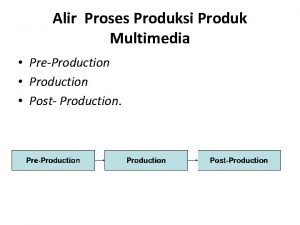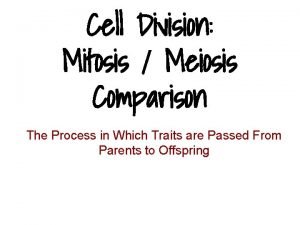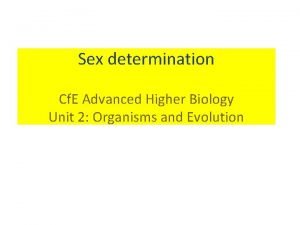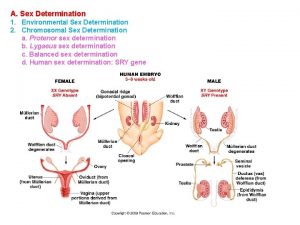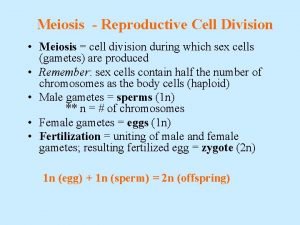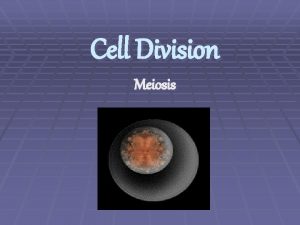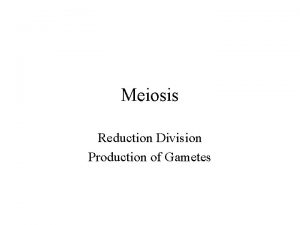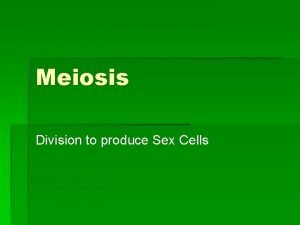Meiosis Cell division reduction division Production of sex











- Slides: 11

Meiosis Cell division – ‘reduction division’ Production of sex cells – gametes

Why do we need meiosis? l Meiosis is necessary to halve the number of chromosomes going into the sex cells Why halve the chromosomes in gametes? At fertilization the male and female sex cells will provide ½ of the chromosomes each – so the offspring has genes from both parents

How many chromosomes does a human have? lchromosomes total- 46 ¡ 23 from male sperm ¡ 23 from female egg

What is meiosis? l. Meiosis has two rounds of cell division, meiosis I and meiosis II each subdivided into prophase, metaphase, anaphase and telophase. l. Results in 4 daughter cells, each with half of the genetic material of the original cell.

Parent cell Chromosomes are copied and double in number Chromosomes now split 2 daughter cells identical to original

Meiosis Parent cell – chromosome pair Chromosomes copied 1 st division - pairs split 2 nd division – produces 4 gamete cells with ½ the original no. of chromosomes

Meiosis – mouse Parent cell 1 st division 2 nd division 4 gametes

Function of Meiosis l. Meiosis is a process that occurs for the following functions: ¡To reduce the chromosome number from diploid to haploid. This is called a reduction division ¡To ensure that each haploid cell has a complete set of chromosomes ¡To promote genetic diversity because each cell is unique.

Compare mitosis to meiosis Mitosis Meiosis Produces genetically identical cells Produces genetically unique cells Results in diploid cells Results in haploid cells Takes place throughout life Takes place only at certain times Involved in asexual reproduction Involved in sexual reproduction

Meiosis






